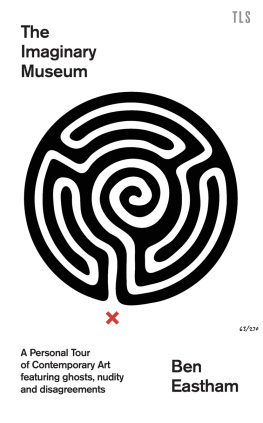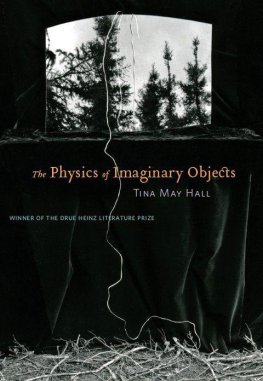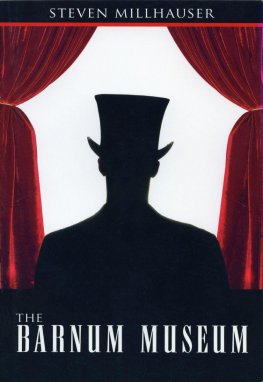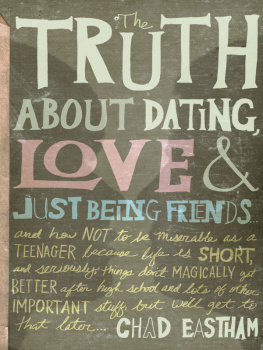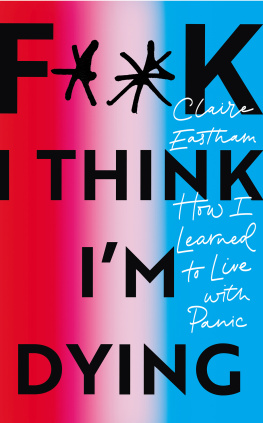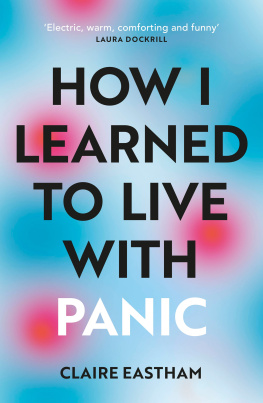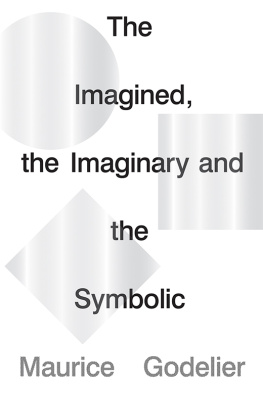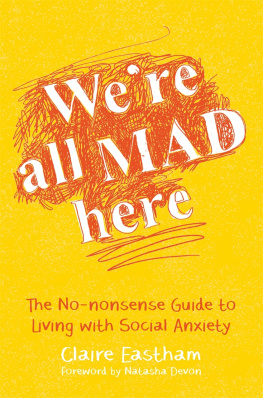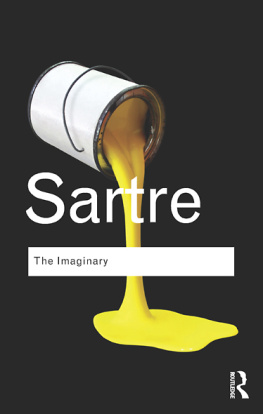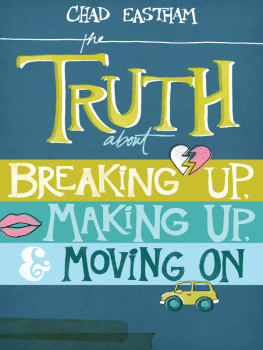Ben Eastham - The Imaginary Museum
Here you can read online Ben Eastham - The Imaginary Museum full text of the book (entire story) in english for free. Download pdf and epub, get meaning, cover and reviews about this ebook. year: 2020, publisher: HarperCollins Publishers, genre: Art. Description of the work, (preface) as well as reviews are available. Best literature library LitArk.com created for fans of good reading and offers a wide selection of genres:
Romance novel
Science fiction
Adventure
Detective
Science
History
Home and family
Prose
Art
Politics
Computer
Non-fiction
Religion
Business
Children
Humor
Choose a favorite category and find really read worthwhile books. Enjoy immersion in the world of imagination, feel the emotions of the characters or learn something new for yourself, make an fascinating discovery.
- Book:The Imaginary Museum
- Author:
- Publisher:HarperCollins Publishers
- Genre:
- Year:2020
- Rating:5 / 5
- Favourites:Add to favourites
- Your mark:
- 100
- 1
- 2
- 3
- 4
- 5
The Imaginary Museum: summary, description and annotation
We offer to read an annotation, description, summary or preface (depends on what the author of the book "The Imaginary Museum" wrote himself). If you haven't found the necessary information about the book — write in the comments, we will try to find it.
The Imaginary Museum — read online for free the complete book (whole text) full work
Below is the text of the book, divided by pages. System saving the place of the last page read, allows you to conveniently read the book "The Imaginary Museum" online for free, without having to search again every time where you left off. Put a bookmark, and you can go to the page where you finished reading at any time.
Font size:
Interval:
Bookmark:

The Times Literary Supplement was born in January 1902. Its first ever front page bashfully stated that during the Parliamentary session Literary Supplements to The Times will appear as often as may be necessary in order to keep abreast with the more important publications of the day. Fortunately, the question of necessity was not left in the hands of literary journalists (who, we can imagine, might occasionally push for a holiday or two), and the title became a weekly one. A few years later, the TLS split entirely from The Times.
Since then, we have prided ourselves on being the worlds leading magazine for culture and ideas. Our guiding principle for the selection of pieces remains the same as it ever has been: is it interesting; and is it beautifully written? Over the years, our contributors have included the very best writers and thinkers in the world: from Virginia Woolf to Seamus Heaney, Sylvia Plath to Susan Sontag, Milan Kundera to Christopher Hitchens, Patricia Highsmith to Martin Scorsese.
The book you are holding is part of a brand-new imprint, TLS Books, by which we are striving to bring more beautiful writing to a wider public. We hope you enjoy it. If you want to read more from us, youll find a special trial subscription offer to the TLS at the back of this book.
In an ever-quickening culture of flipness and facility, fake news and Facebook, the TLS is determined to be part of the counter-culture of quality. We believe in expertise, breadth and depth. We believe in the importance of ideas, and the transformative power of art. And we believe that, in reading the TLS in whatever form, be it in a magazine, online or in a book you are supporting a set of values that we have been proud to uphold for more than a hundred years. So thank you for that.
Stig Abell, 11th Editor of the TLS
London, 2019
TLS Books
An imprint of HarperCollinsPublishers
1 London Bridge Street
London SE1 9GF
The-TLS.co.uk
This eBook first published in Great Britain by TLS Books in 2020
Copyright Ben Eastham 2020
Cover image: Labyrinth #63 Embankment by Mark Wallinger Mark Wallinger/DACS 2020. Courtesy the artist and Hauser & Wirth.
Ben Eastham asserts the moral right to be identified as the author of this work
A catalogue record for this book is available from the British Library
All rights reserved under International and Pan-American Copyright Conventions. By payment of the required fees, you have been granted the non-exclusive, non-transferable right to access and read the text of this e-book on-screen. No part of this text may be reproduced, transmitted, down-loaded, decompiled, reverse engineered, or stored in or introduced into any information storage and retrieval system, in any form or by any means, whether electronic or mechanical, now known or hereinafter invented, without the express written permission of HarperCollins.
Source ISBN: 9780008375423
Ebook Edition August 2020 ISBN: 9780008375430
Version: 2020-07-14
Just as we should view art not as an accumulation of so-called art objects, but as a way of approaching knowledge, we should also view knowledge not as an accumulation of data, but as a flexible mechanism for reorganizing reality
Luis Camnitzer
Museums are just a lot of lies
Pablo Picasso
Introduction
Great nations write their autobiographies in three manuscripts, wrote John Ruskin, the book of their deeds, the book of their words and the book of their art. Which begs the question: what does the book of contemporary art tell us about the society in which we live today? How should you read it and who gets to write it?
These questions came to mind when, on my first assignment as an art critic, I watched a naked man climb slowly onto a jet engine. Once he had reached his perch and assumed the pose of Rodins The Thinker, a curator explained to the press gathered around the jet that this performance signified Englands retreat into post-industrial nostalgia. The nude redoubled his attempts to look nostalgic while, beneath him, several critics nodded to signal that this only confirmed what they had already intuited. I raised my pen to announce to my competitors the imminent arrival of a brilliant critical insight and, when it failed to appear, was reduced to sketching a cartoon penis into my notebook.
There was more of this in the exhibition: a stack of tightly rolled hotel towels alluding, we were told, to the international art worlds fantastically high carbon footprint; battered computer hard drives highlighting Chinas exploitation of Africas natural resources. I had no idea what to make of all this and so, when the press preview came to an end, was eager to dodge the mingling over coffee and pastries for fear of being caught out in conversation by someone who did. Having pocketed a miniature croissant, my escape was thwarted when I bumped into the arts correspondent of a national newspaper rolling a cigarette at the door.
I said sorry and then, in the hope of gleaning some idea I could plagiarize for my own review, asked him what he made of the show.
No fucking idea, he replied. Who are you?
I told him my name.
He patted his pockets for a lighter, found it, cupped the flame to his lips. I liked it, though, he said. Then, after a pause, You?
Ruskins quote continues: Not one of these books [of a nations deeds, words, art] can be understood unless we read the two others, but of the three the only trustworthy one is the last. You dont have to like what it says, the Victorian art critic tells us, but the book of art does not lie. If it seems that art strayed a few decades ago into illegibility, then it might be that the book doesnt only document the state of nations but predicts them.
Because the stories that have shaped western societies since the fall of the Berlin Wall seem recently to have broken down: it is no longer possible to assume the end of history through the inevitable triumph of liberal democracy, free-market capitalism and human rights-based law. Financial crises, mass migrations, global pandemics and environmental catastrophes have, whats more, revealed the systems governing our lives to be complicated beyond the comprehension of even those tasked with managing them. From the ex-chairman of the US Federal Reserve conceding that the subprime mortgage crisis had undermined his basic faith in the way the world works, to scientists reiterating that the global ecosystem is so entangled that the local effects of climate change cannot accurately be foreseen, or world leaders being forced by an unruly strand of ribonucleic acid to incarcerate whole populations, the old authorities appear to have lost control of the narrative.
The effects are exacerbated by our access to unprecedented amounts of data while remaining unschooled in how to filter it. We are drowning in information that we are no longer able to organize into easily comprehensible stories. Disbarred from conversations we are told are beyond us, it's not surprising that so many succumb to scapegoating and the seductions of populists who abuse plain speech and appeal to simpler pasts. There is a prevailing sense, in the west, of the thread that binds communities together having unravelled.
It is a staple criticism of contemporary art that it, too, has lost the plot. In the past couple of years I have attended a seven-hour-recital of a looping two-and-half-minute passage from Franz Schuberts An die Musik; travelled via virtual reality simulation to the surface of the moon not once but twice; watched an opera about climate change set on an artificial beach in an Italian military complex; taken a lesson in Sinhalese at a Manchester museum; and chaired a discussion about a video set in a Silicon Valley dystopia featuring a transgender dancer who brings Ayn Rand to climax. That all of these events have been framed as art could be taken as evidence that the term has lost all meaning, or that it has become so highly coded as to be indecipherable to anyone without a specialist education. Its easy to imagine eyes rolling, but I found all of the above experiences in some way moving, memorable or enlightening. New forms of art going back to Impressionism and beyond have routinely been dismissed as absurd, the speculation of chancers or the ravings of the deranged. So it is worth asking: what binds together these and other works of contemporary art? And how do they reflect on a complex and chaotic world?
Font size:
Interval:
Bookmark:
Similar books «The Imaginary Museum»
Look at similar books to The Imaginary Museum. We have selected literature similar in name and meaning in the hope of providing readers with more options to find new, interesting, not yet read works.
Discussion, reviews of the book The Imaginary Museum and just readers' own opinions. Leave your comments, write what you think about the work, its meaning or the main characters. Specify what exactly you liked and what you didn't like, and why you think so.

